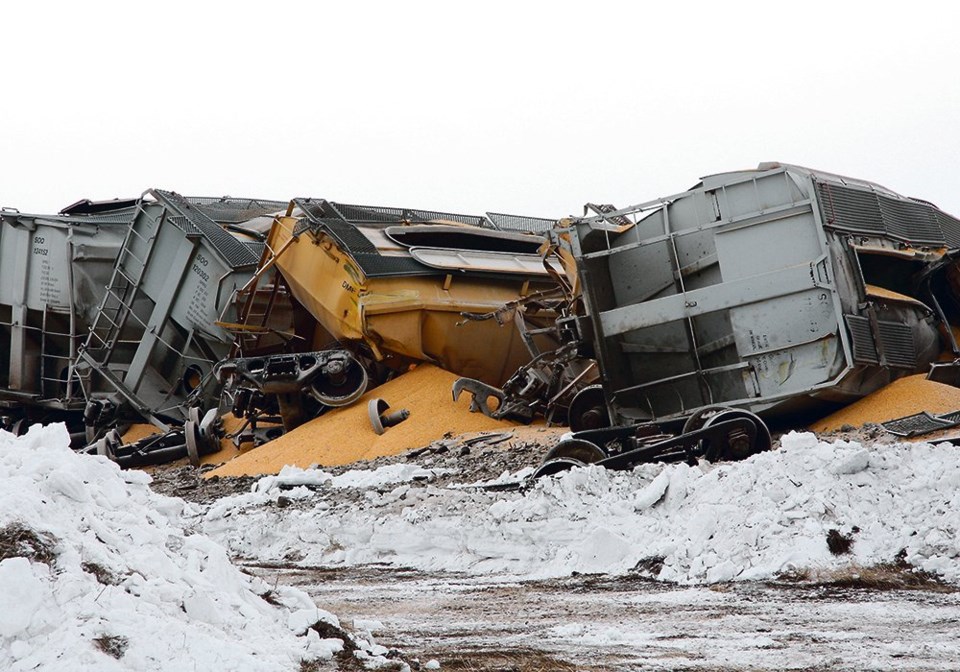WESTERN PRODUCER — Livestock producers in Western Canada want to know why corn spilled in recent train derailments can’t be fed to cattle, given the lack of feed in the drought-affected region.
On March 13 at about 6:30 a.m., 34 cars carrying feed corn from the United States on the Canadian Pacific Railway Soo line went off the tracks near Drinkwater, Sask. No one was injured. The cause has not yet been determined and the incident remains under investigation.
However, when corn spills in an accident like this, the Canadian Food Inspection Agency requires it to be buried deep in the ground. The agency hires contractors to do that.
On social media, farmers wanted to know why the rules are different for corn than they are for other grains and oilseeds. Often, those commodities can be cleaned up and used by locals if they haven’t become contaminated.
CFIA did not reply to a request for more information before Western Producer deadlines March 14.
There have been a couple of derailments recently involving corn, although smaller, and farmers said burying it is a waste. Feed supplies are short with weeks of winter feeding yet to go. Cold weather has meant shorter trains, too.
Brad Welter, president of Pound-Maker, said the Lanigan, Sask., feedlot hasn’t been directly impacted by a derailment but feed supplies are so short that every load lost contributes to the overall problem.
“Certainly someone, somewhere is going to be short on corn deliveries. It is definitely a concern for the industry as we know that the shelves are not overstocked in corn and our western Canadian feedlots are counting on it,” he said.
The industry has polled members to gauge feed inventories in light of looming labour issues at CP, and most feedlots indicated they had between five and 15 days’ worth available.
While 34 carloads of feed lost in the derailment might not be a lot in the big scheme of things, it counts when an industry is struggling.
“So any little bit of a glitch in delivery is pretty serious stuff when we look at how many hundreds of thousands of cattle are counting on that corn,” said Welter, adding the situation will also be exacerbated by delivery delays caused by the derailment.
In southern Alberta, feedlot owner Kevin Serfas said the loss of feed in 34 cars could have an immediate impact depending on where the corn was heading.
“Couple that with a looming CP strike or lockout, there are some yards that could potentially be in trouble,” he said.




